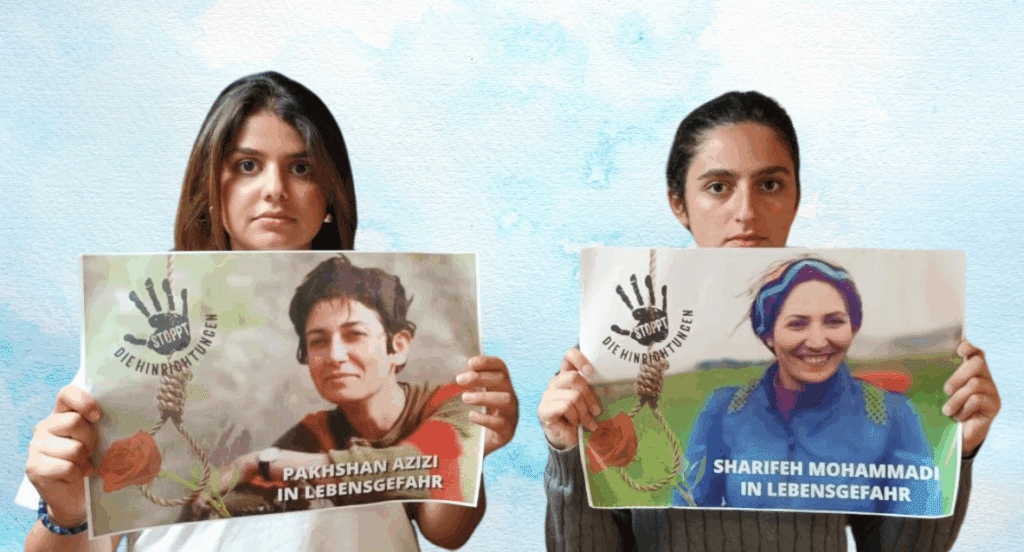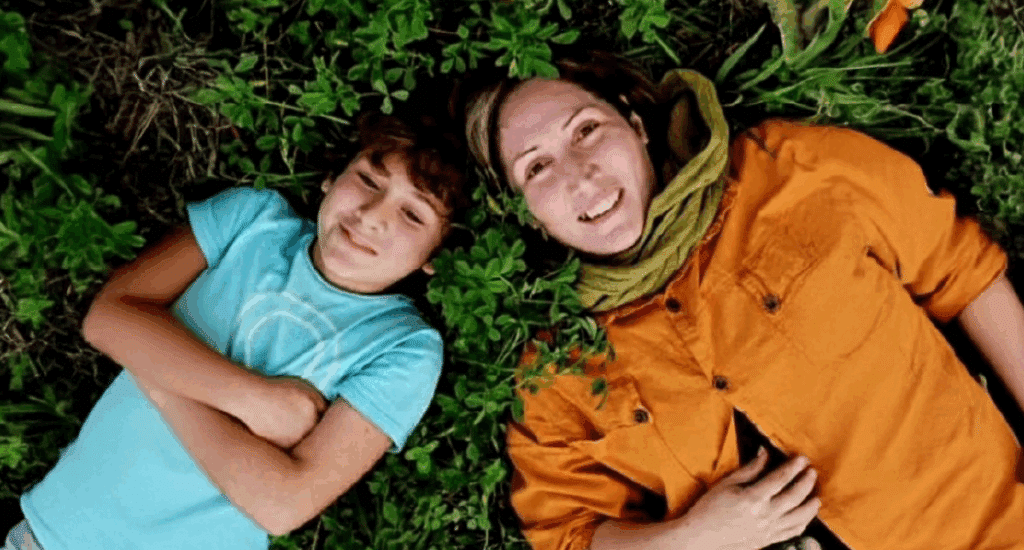In Iran, the lives of countless human rights activists are threatened every day. Among them is Sharifeh Mohammadi, a prominent women’s rights activist who is at risk of execution after her death sentence was confirmed in February 2025. Sharifeh is not just a political prisoner, but a mother and a fighter who has dedicated her life to the pursuit of justice. In prison, Sharifeh has been subjected to unimaginable physical and psychological torture.
Sharifeh’s story is not unique. Varisha Moradi, another Iranian women’s rights advocate, also faces the death penalty for standing up against the oppressive regime. Varisha was arrested in 2023 and endured brutal torture in prison to force her into false confessions. Like Sharifeh, she participated in hunger strikes to protest her unjust imprisonment.
Then there is Pakhshan Azizi, a social worker and advocate for women’s rights, who was sentenced to death for her work in support of democracy and the rights of women and children. The torture and inhumane treatment Pakhshan has suffered during her detention illustrate the brutality to which activists in Iran are subjected.

These women have become symbols of resilience and hope in the fight for countless others who are being silenced by the Mullah regime. However, Sharifeh’s situation is particularly dire, as her death sentence has already been ratified, meaning her execution could happen at any moment. This puts her life in immediate danger, and it is up to us, the global community, to stand with her and demand her freedom.
The Death Penalty in Iran: A Tool of Oppression
The Iranian regime has long used the death penalty as a means to suppress the Iranian people’s aspirations for freedom. In recent years, Iran has consistently had one of the highest execution rates in the world, including the highest number of executions of women. There are also executions of children and minors. The victims are primarily individuals who stand up for human rights, women’s rights, freedom of expression, and a free Iran. Reports indicate that the number of executions in Iran has risen sharply, with over 900 executions recorded in 2024 alone. Among those executed are human rights activists, political prisoners, members of ethnic minorities, and those who have been convicted in unfair trials under the regime’s strict and discriminatory laws.
The Mullah regime uses executions not only to punish dissent but also to instill fear in the population. The regime sees the death penalty as a necessary tool to maintain control over the people and silence those who challenge its authority. Now, more than ever, it is vital that we raise our voices to prevent further executions.
International Pressure: A Path to Saving Lives
International pressure plays a critical role in influencing the Mullah regime’s decisions regarding executions. While the regime responds to domestic protests with fear and repression, growing international pressure against its human rights abuses has begun to show results. A notable example of the impact of international pressure is the case of Toomaj Salehi, a rapper and human rights activist who was sentenced to death for his role in promoting protests against the regime. After intense global pressure, protests both in Iran and abroad, media coverage, diplomatic interventions, and legal campaigns, the regime ultimately refrained from carrying out his execution, overturned the sentence, and released Toomaj.
Toomaj’s case proves that even in the face of such a brutal regime as the Mullahs’, an execution can be stopped through worldwide pressure, giving hope to others who face the same fate.

International efforts, including diplomatic and economic sanctions, continued public advocacy, vigils, campaigns with lawyers, human rights defenders, parliamentarians, and international figures, are crucial to preventing more executions. By holding the Mullah regime accountable for its crimes, we can send a clear message that the world will not stand idly by while innocent people are killed. These efforts have proven successful in many cases and can continue to make a difference for Sharifeh Mohammadi, Varisha Moradi, Pakhshan Azizi, and all those who have courageously fought for human rights and freedom despite the dictatorship.
A Call to Action: We Can Save Lives!
We cannot remain silent while innocent lives are in danger. The cases of Sharifeh Mohammadi, Varisha Moradi, and Pakhshan Azizi make it clear that urgent action is needed to prevent executions in Iran. These women, and many others, have dedicated their lives to the fight for justice, equality, human rights, and freedom. Now, we must stand with them and demand their freedom.
Your support is crucial in amplifying the voices of these human rights activists and calling on the violent regime in Iran to end the use of the death penalty. By participating in international campaigns, supporting legal actions, and exposing the regime’s human rights violations, we can ensure these activists are not forgotten.
Sharifeh’s fight is not just her own; it is a fight for life, for freedom, and for the rights of all those who have been silenced by the dictatorship. It is a fight we must win. Together, we can save lives!
Sharifeh Mohammadi’s plea, “Let me live,” should resonate with all of us, and it is our shared responsibility to make this plea heard worldwide. Together, we can save lives. Let’s not allow the Mullah regime to continue silencing those who dare to fight for freedom.
Donate to International Campaigns
A Vital Step in Saving Lives
Your financial support is crucial and essential. Only through our collective efforts and solidarity can we create the pressure needed to save lives and ensure justice for those who risk everything for a better future.
Together, we can stop the executions and ensure that Sharifeh, Varisha, Pakhshan, and many others are given the chance to live the lives they deserve. Let’s act now. Let’s make sure their voices are heard. Let’s save lives.




